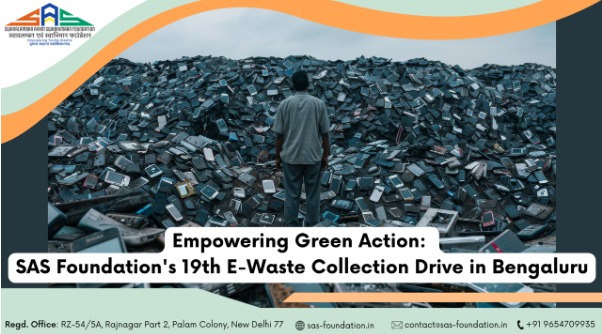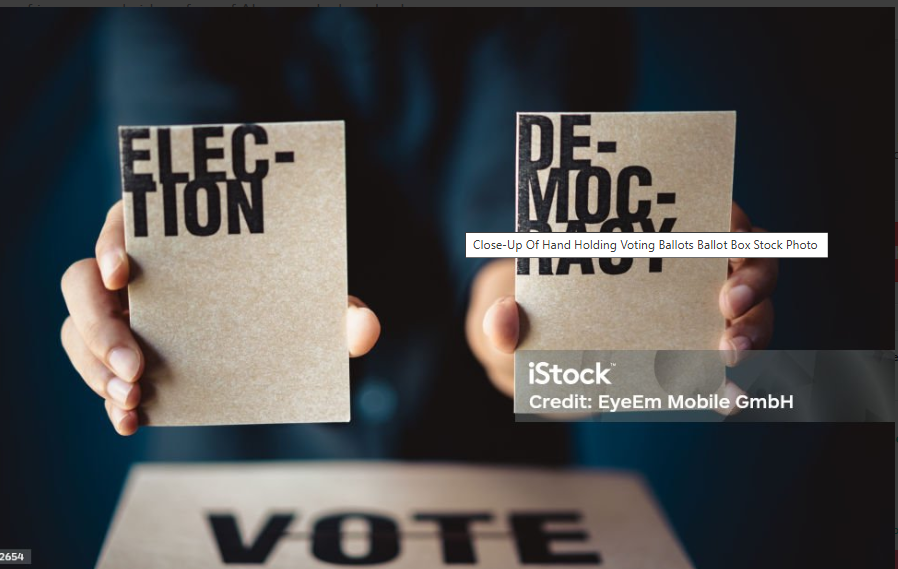Powering a Greener Tomorrow: SAS Foundation’s First E-Waste Drive in Noida Marks a Major Milestone
In a remarkable stride toward sustainability, Swavalamban Avam Swabhimaan Foundation (SAS Foundation) has successfully conducted its first e-waste collection drive in Noida, gathering an impressive 2297 kilograms of electronic waste. This landmark event is not just a number—it’s a loud, clear call to action for responsible e-waste disposal and a testimony to the power of collective efforts in building a cleaner, more conscious India.
🌍 Why E-Waste Matters Now More Than Ever
The exponential growth of technology has enhanced our lives in countless ways, but it also comes at a cost. India is currently the third-largest generator of e-waste in the world, and yet, less than 20% of it is formally recycled. Discarded smartphones, laptops, chargers, cables, and other electronic devices end up in landfills, leaking hazardous chemicals into the soil and water, affecting both the environment and public health.
SAS Foundation recognized this urgent problem and responded by launching a community-based e-waste collection initiative, driven by the belief that sustainable change begins at the grassroots level.
🛠️ The Drive: From Awareness to Action
Held in Noida, this inaugural e-waste drive was organized with one mission—to promote eco-consciousness among citizens, institutions, and businesses. In collaboration with local schools, housing societies, and environmental partners, the Foundation created awareness, facilitated drop-off points, and ensured proper handling of e-waste through certified recyclers.
The response was overwhelming. Families brought in old phones, broken appliances, chargers, batteries, and even unused desktop sets—items that often lie forgotten in drawers or storerooms, destined for improper disposal.
By the end of the event, 2297 kgs of e-waste had been responsibly collected and handed over for safe recycling. It’s not just about what was collected—it’s about what was prevented:
- Toxic metals like lead, mercury, and cadmium from entering the soil and water table
- Valuable resources like gold, copper, and rare earth metals being recovered and reused
- Hundreds of people now better informed about eco-friendly disposal practices
🧩 The Bigger Picture: 3-Tonne Target for 2025
While this milestone is worth celebrating, SAS Foundation isn’t stopping here. The organization has set an ambitious goal of collecting over 3000 kilograms (3 tonnes) of e-waste by the end of 2025 across different cities, including:
- Delhi NCR
- Ghaziabad
- Lucknow
- Bhopal
- Gurgaon
- Pune
These drives are designed not only to collect e-waste but to educate, engage, and empower local communities—especially students, youth volunteers, and RWAs (Resident Welfare Associations).
📚 Schools as Change Agents
One of the most effective ways to shift behaviors is to involve young minds. SAS Foundation is working with schools across cities to launch e-waste awareness programs, hands-on workshops, and even “Green Clubs” that encourage students to take the lead.
From making posters and digital campaigns to hosting quiz competitions and storytelling contests, these initiatives are aimed at helping the next generation understand the environmental cost of digital convenience and embrace their role as eco-champions.
🔄 Circular Economy in Action
The drive is also a practical demonstration of the circular economy, where the value of products and materials is retained in the system for as long as possible. By preventing electronic devices from ending up in landfills and instead directing them into formal recycling chains, the Foundation is helping India:
- Conserve natural resources
- Reduce dependency on raw material imports
- Lower greenhouse gas emissions
- Create green jobs in the recycling sector
🙌 Collaboration is Key
SAS Foundation’s success story is rooted in partnerships. The Noida drive was made possible with the support of:
- Local volunteers and student ambassadors
- Municipal officials who facilitated logistical support
- Certified recyclers who ensured safe processing
- Environmentally responsible housing societies and corporate offices who actively contributed
Each stakeholder brought something unique to the table, showing that when public, private, and civil sectors work together, impactful change is not only possible—it’s inevitable.
🔍 What’s Next?
The Foundation plans to:
- Organize monthly e-waste mini drives in schools and tech parks
- Launch an e-waste helpline to guide citizens on safe disposal
- Publish an “E-Waste Impact Report 2024” highlighting statistics, success stories, and challenges
- Collaborate with universities for research on sustainable electronics use
Beyond these, SAS Foundation is also advocating for policy-level awareness and engaging with government bodies to amplify the importance of building a national e-waste responsibility framework.
💬 A Call to Action
We live in a world where convenience often overshadows consequences. But the truth is, every smartphone disposed of carelessly, every charger thrown in the trash, every old laptop ignored—contributes to environmental degradation.
SAS Foundation believes that small actions can lead to big transformations. And this first drive is proof that when people are informed, inspired, and involved—they act.
So, here’s what you can do:
✅ Check your drawers and storerooms for unused electronic items
✅ Bring them to our upcoming e-waste collection points
✅ Volunteer or support our awareness drives
✅ Educate your friends, children, and coworkers
✅ Subscribe to our newsletter and stay updated on our upcoming green initiatives
📣 Join the Movement!
Together, we can build a world where technology and sustainability go hand in hand. Let’s not just use gadgets smartly—let’s dispose of them smartly too.
🌱 Subscribe on LinkedIn to follow our journey and be part of this change: https://lnkd.in/d7Qzwvtw
📦 Your e-waste can power a cleaner planet. Be the change. Recycle responsibly.










